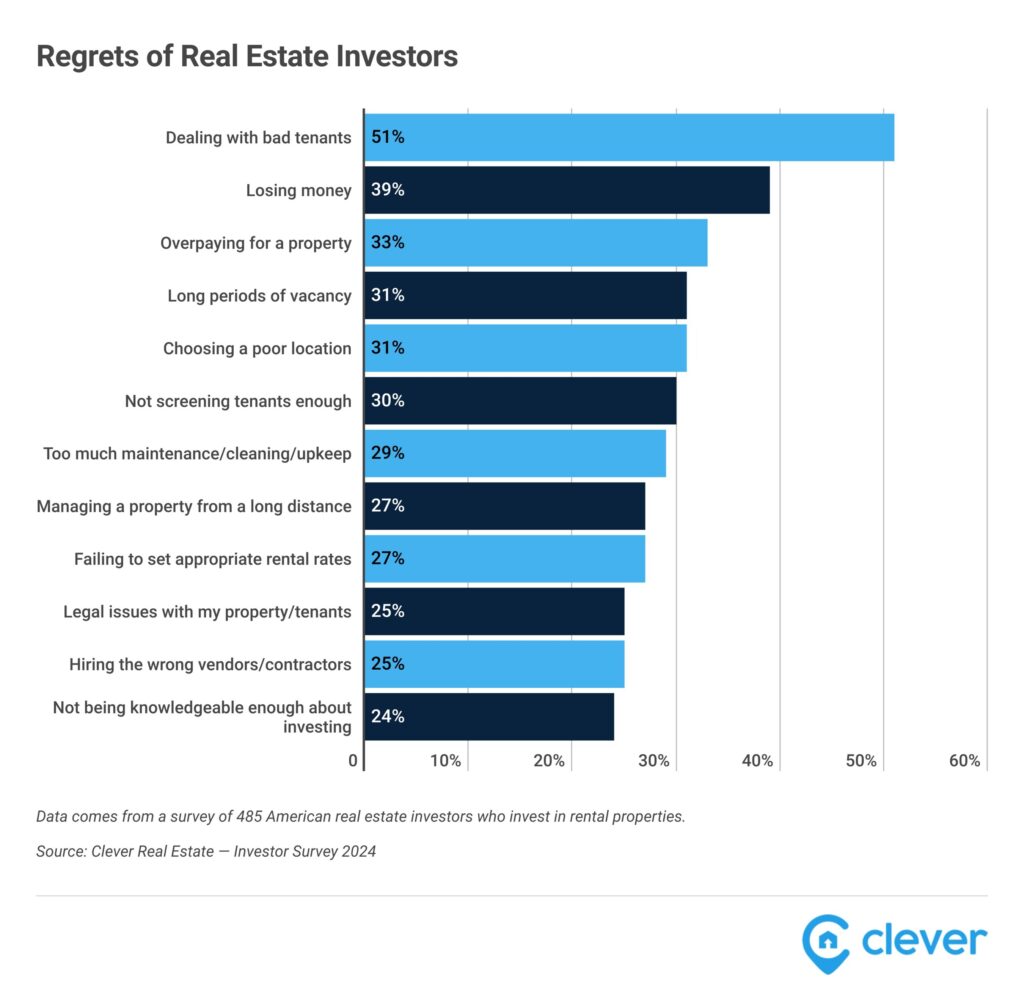

The idea that you can’t go wrong investing in brick and mortar is robustly dismissed by new research that shows just how risky these assets can be.
Among residential real estate investors, 90% said that they have lost money on their investments, with 52% revealing that they have lost at least $100,000 on a single investment and 42% losing at least $200,000.
The poll by education resource Clever Real Estate found that 45% of respondents have been almost ruined financially by a residential real estate investment and 40% with they had never invested in the asset class.
Almost nine in ten of those who took part in the poll said they have regrets about their investments with dealing with bad tenants and severe property damage cause by tenants among the main issues.
Almost two thirds of investors said they have to deal with complaints about their tenants from neighbors at least once a week, 56% have had to evict a tenant, and 61% say they have to track down missed rent payments every month.
That said, four in ten respondents said they rely on their real estate investment income and 75% are making at least as much in 2024 as they were last year with 41% making more compared to 14% who are making less.
Most respondents are investing in more than one type of residential real estate investment, including traditional long-term rentals (51%), buying land for future development (45%), house-flipping (42%), and short-term or vacation rentals (40%).
High interest rates, high home prices, and inflation are the top concerns identified by the study.


Most firms place a limit on advisors’ sales of alternative investments to clients in the neighborhood of 10% a customer’s net worth.

Those jumping ship include women advisors and breakaways.

Firms in New York and Arizona are the latest additions to the mega-RIA.

The agent, Todd Bernstein, 67, has been charged with four counts of insurance fraud linked to allegedly switching clients from one set of annuities to another.

“While harm certainly occurred, it was not the cataclysmic harm that can justify a nearly half billion-dollar award to the State,” Justice Peter Moulton wrote, while Trump will face limits in his ability to do business in New York.
Orion's Tom Wilson on delivering coordinated, high-touch service in a world where returns alone no longer set you apart.
Barely a decade old, registered index-linked annuities have quickly surged in popularity, thanks to their unique blend of protection and growth potential—an appealing option for investors looking to chart a steadier course through today's choppy market waters, says Myles Lambert, Brighthouse Financial.
